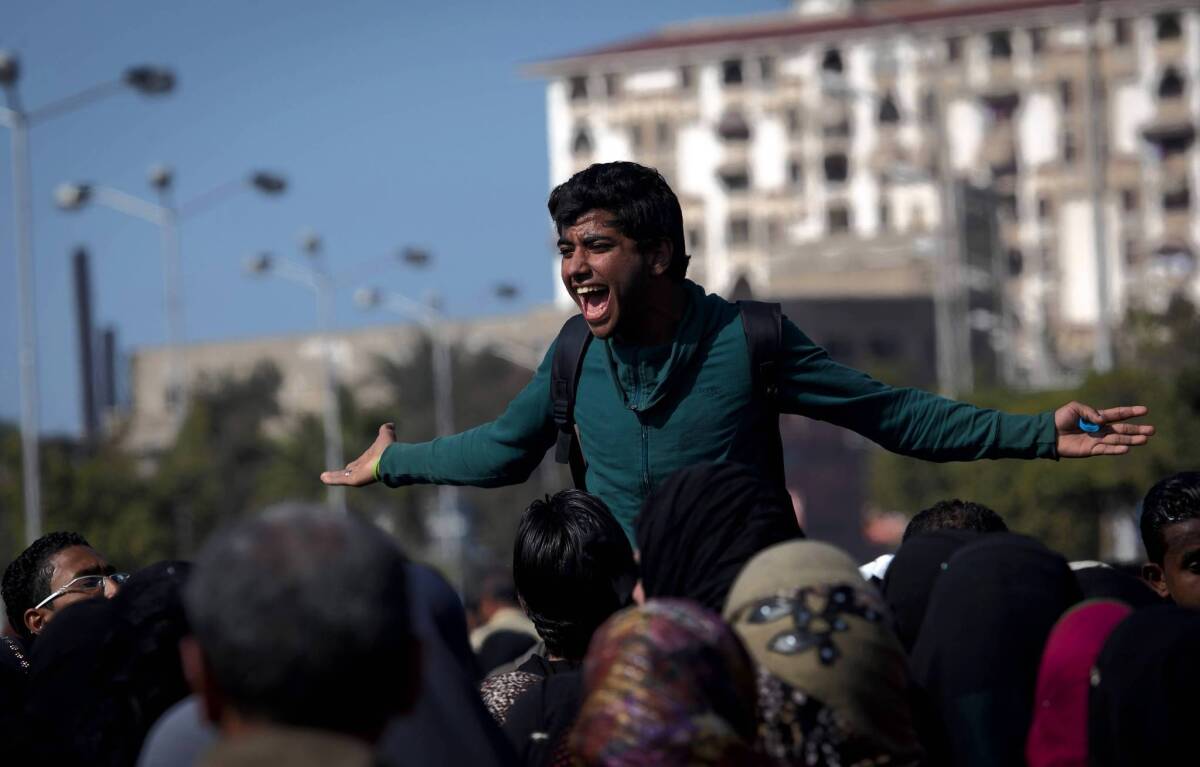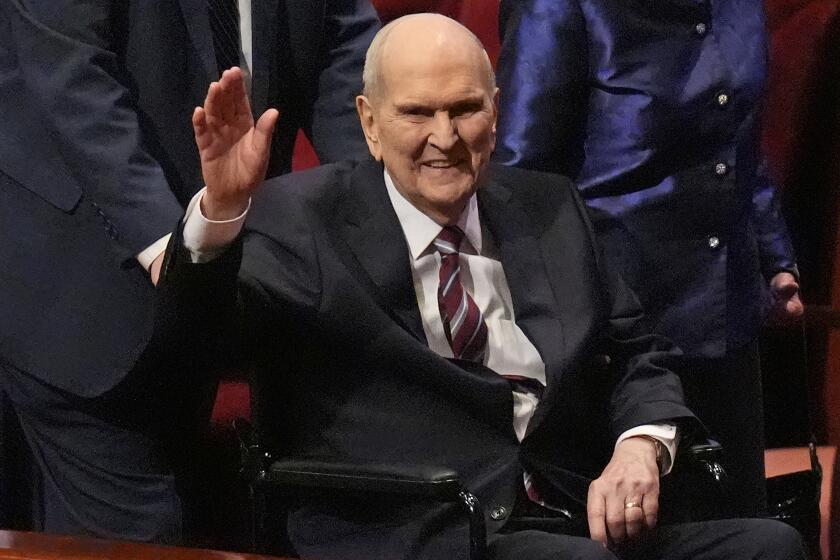Egypt’s main opposition coalition will boycott elections

CAIRO — In another blow to Egypt’s troubled democratic transition, the main opposition coalition announced Tuesday that it would boycott upcoming parliamentary elections because it didn’t trust the Islamic-led government of President Mohamed Morsi to guarantee a fair vote.
The decision by the secular and liberal National Salvation Front was widely expected after the nation’s highest court ruled this month that provisions in the election law were unconstitutional. The opposition’s strategy virtually ensures that Islamists, notably the Muslim Brotherhood and the ultraconservative Nour Party, will dominate the new legislature after the vote, which begins in April.
The opposition has struggled since the 2011 overthrow of Hosni Mubarak to forge a galvanizing vision for a new Egypt. It has been plagued by internal divisions and overwhelmed by the grass-roots reach of Islamists to turn out voters. Despite its shortcomings, however, the National Salvation Front was the only credible voice challenging the country’s drift toward political Islam.
“There can be no elections without a law that guarantees the fairness of the election process and a government that can implement such a law and be trusted by the people,” Sameh Ashour, a spokesman for the coalition, said during a news conference.
The opposition is “boycotting because they have limited options,” said Magdy Sobhi, an analyst at Al Ahram Center for Political and Strategic Studies. He said Morsi refused to meet key opposition demands, including appointing a new Cabinet and forming a committee to amend the new Islamist-drafted constitution.
“We are back at square one,” he said. “There is a large division in the Egyptian street. The only solution now is for the presidency and the main opposition to sit down and have genuine talks to solve the political crisis.”
The boycott announcement comes amid an imploding economy and widening political unrest that in recent weeks has sparked protests and riots that killed more than 50 people. Activists in Port Said and other cities along the Suez Canal have staged civil disobedience strikes aimed at weakening Egypt’s vital ports.
Morsi and the Muslim Brotherhood, which controlled more than 40% of the seats in the now disbanded parliament, have often appeared unsure how to solve the cascading problems. Without a viable opposition, the evolving political scenario pits the relatively moderate Brotherhood against ultraconservative rival Salafis in a struggle over how deeply Islam will shape public life.
The National Salvation Front has offered a secular course but its appeal was limited and its message has not resonated beyond Cairo, Alexandria and other large cities. Many in the provinces are suspicious of opposition leaders, including Mohamed ElBaradei, a Nobel Peace Prize laureate; Amr Moussa, a former foreign minister under Mubarak; and Hamdeen Sabahi, a firebrand leftist.
The opposition also rejected Morsi’s calls Tuesday for a national dialogue. The nation’s powerful military has urged such talks to prevent an economic meltdown. But there appeared little room for compromise.
“We tell Morsi, ‘Dialogue with yourself. Dialogue with your party,’ ” Ashour said. “The Egyptian people will not accept a dialogue that is imposed.”
Participating in the elections “would not just be a political mistake, but a crime after what has happened,” said Ahmed Abdelhamid, a leftist activist. “But boycotting elections is not enough.... The opposition must make clear decisions, either continue the revolution or participate in politics.”
The staggered parliamentary elections are scheduled to start in April and end in June. The country has been without a parliament since the Constitutional Court disbanded the chamber in June. Morsi has accumulated broader powers, which have led to turmoil in the Arab world’s most populous nation.
The vote will come despite a controversial election law that critics say gives the Muslim Brotherhood an unfair advantage through redistricting electoral constituencies. The Constitutional Court ruled against parts of the law, including an article regarding judicial supervision and one that could limit independent seats. The Islamist-controlled upper house of parliament then amended the law, and it was approved by Morsi.
Special correspondent Reem Abdellatif contributed to this report.
More to Read
Sign up for Essential California
The most important California stories and recommendations in your inbox every morning.
You may occasionally receive promotional content from the Los Angeles Times.











